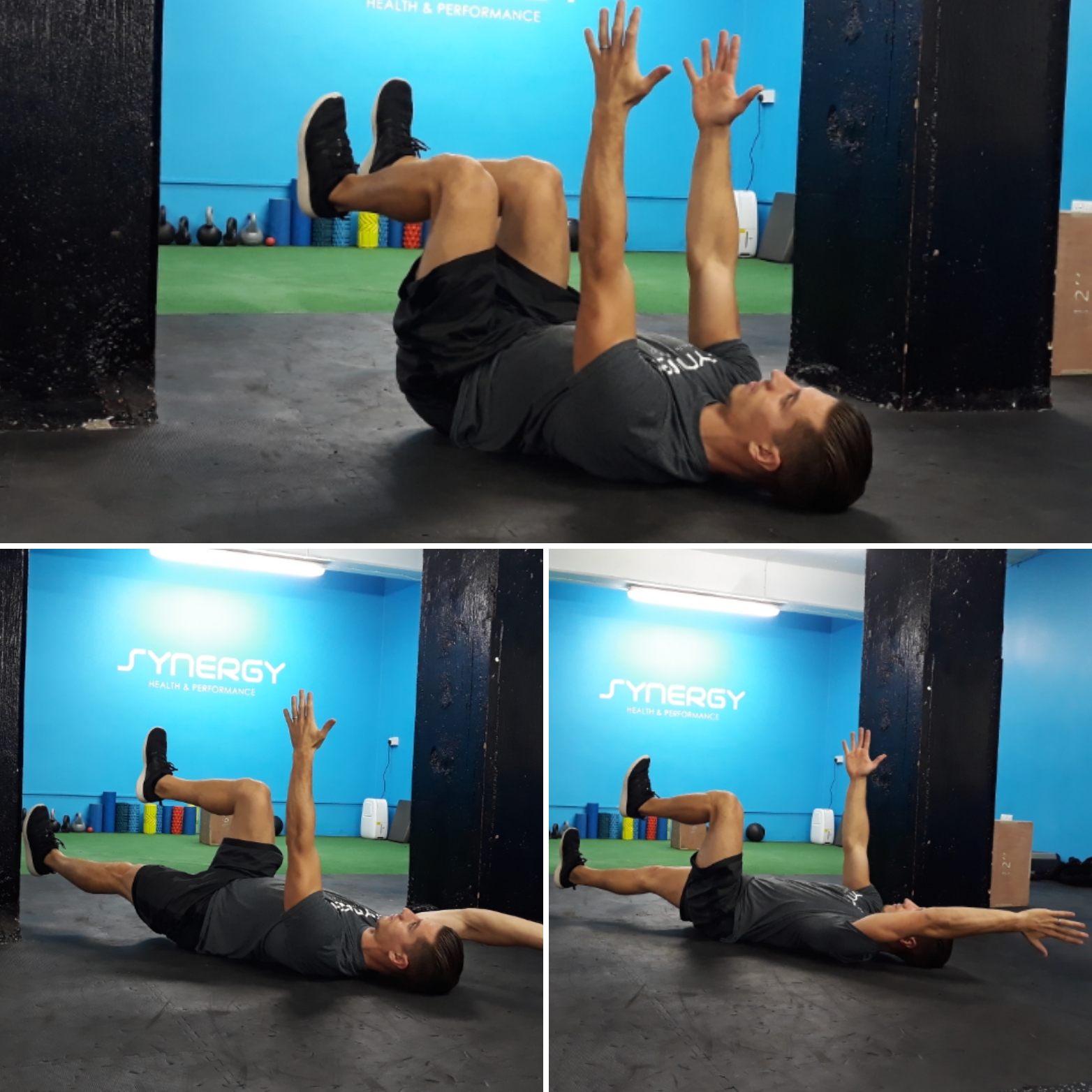Some injuries sustained during sports are unavoidable and simply down to bad luck. That being said there are a number of common injuries that occur during sport and exercise that can be avoided, or at least reduced in severity through proper strength and conditioning. Here are my top 5 exercises for injury prevention & post physiotherapy rehabilitation.
1. Single Leg Deficit Box Squats
Why? Unilateral (single side) movements are great for resolving strength imbalances between sides which often contribute towards increased chances of injury. Single leg squats help strengthen the quads which support you patella (kneecap) & also improve ankle & hip stability.
How? (See Video Demonstration)
Maintain top foot heel contact with box
Lower with control and lightly tap bottom foot heel on ground
Use arms for counterbalance and ensure knee & toes on top leg point the same direction throughout
Use arms for counterbalance but avoid excessive lean forward with body
2. Banded/Cable External Rotation
Why? Shoulder injuries are common in contact sports but most injuries are usually to the smaller rotator cuff muscles that support the shoulder joint. Most people’s training focuses heavily of the external shoulder muscles (Deltoids) but miss out these important supporting muscles.
How? (See Video Demonstration)
Keep elbow locked close to your side (Tip: hold small towel under armpit to maintain strict form, if arm moves away from your body you will drop the towel)
Keep forearm parallel to the floor throughout the exercise
3. Nordic Curls (advanced)
Why? Some studies have found that training adaptations from eccentric training can lower the frequency of muscle tears. Another factor that has been linked to an increased chance of injury is a imbalance between quad and hamstring strength. People are often quad dominant so this hamstring exercise is perfect for reducing the imbalance.
How? (See Video Demonstration)
Maintain straight body and lower as slow as possible
Catch yourself and go into a press up
Use the minimum amount of push needed to get back to top using mostly your hamstrings
Finish the last 20% of the way up slowly with just your hamstrings
Too difficult? Try a Swiss Ball Hamstring Curl
4. Deadbugs
Why? Core strength is essential for supporting your spine and holding your body solid whilst producing force through your limbs. A week core is like having soft suspension on a bike and trying to go fast. The power you push into the pedals that should go into propelling you forward is instead wasted into movement in the suspension. A solid core strength means you can transfer that force generated onto moving another player and not waste power into a weak core.
How? (See Video Demonstration)
The most important thing is to keep your lower back flat to the floor (NO ARCHING)
Drop leg & opposite arm down as far as you can go without losing lower back contact with the floor
Perform a 30-90 second set of slow controlled alternating drops
5. Single Leg Romanian Deadlifts
Why? Excellent for developing ankle and hip strength and stability as well as improving hamstring flexibility. This will truly expose your strength and flexibility imbalances showing you what you need to work on to be a more efficient, high performing athlete.
How? (See Video Demonstration)
Maintain a slight bend in the knee of the leg you are standing on
Don’t twist hips during movement
Reach hands towards shoe laces maintaining flat back
Online workout programs, 1-to-1 personal training and personalised group sessions are all available here in Chester with our gym Synergy Health & Performance.
Fancy trying a new sport, why not check out the Chester Romans American Football Team putting all that gym work to the test!
- Tom Peto





